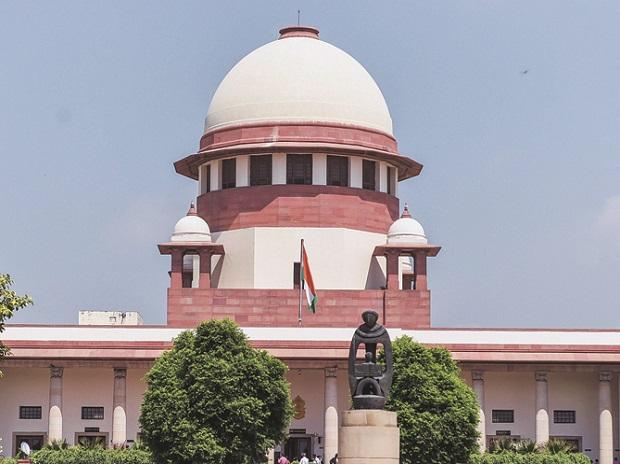[ad_1]
Supreme Court (SC) on Monday upheld the validity of the 10 per cent reservation to the economically weaker section (EWS) under the 103rd Constitutional Amendment. In a 3 to 2 verdict, the five-member bench headed by the Chief Justice of India, UU Lalit, upheld the EWS quota on Monday.
CJI Lalit and Justice Ravindra Bhat dissented witht the majority judgment on the exclusion of SC/ST from the EWS quota.
CJI Lalit is set to retire on November 8.
SC said that the EWS quota does not violate the basic structure of the Constitution set under the Indra Sawhney Case (1992).
The judgment was pronounced by a five-judge bench headed by Chief Justice UU Lalit and also comprising Justices Dinesh Maheshwari, S Ravindra Bhat, Bela M Trivedi and JB Pardiwala.
Justice Dinesh Maheshwari in the judgment said the EWS quota law did not violate the basic structure or equality code for taking into account the economic criterion. He said the EWS reservation does not cause damage to any essential feature of the Constitution by exceeding the 50 per cent ceiling for quota since the ceiling is itself flexible.
Justice Bela M Trivedi said the 103rd constitutional amendment cannot be struck down on grounds of being discriminatory.
Justice JB Pardiwala concurred with their views and upheld the validity of the amendment.
However, Chief Justice UU Lalit and Justice Bhat dissented with the other three judges on the bench.
CJI UU Lalit and Justice Bhat said the law was discriminatory and violative of the basic structure of the Construction.
What was the case?
On January 12, 2019, the government of India amended the Constitution to provide a 10 per cent reservation to the candidates from the general category that belongs to the “Economically Weaker Section (EWS)” of the society.
To qualify for the reservation, the household income of the candidate must be less than Rs 8 lakh per annum.
People belonging to OBC, SC or ST categories were not eligible for reservations under this amendment.
Critics argued that the amendment violated the basic structure of the Constitution.
In the Indra Sawhney & Others vs Union of India case, 1992, the Supreme Court stated that no amendment that violates the Constitution’s basic structure would be valid.
It further stated that the total number of reserved seats and positions could not exceed 50 per cent of the total. Also, economic backwardness cannot be the sole reason for reservation.
Senior advocate P. Wilson argued that Articles 15(4) & 16(4) are enabling provisions to grant reservations which are affirmative action to offset centuries of social discrimination and promote equality. He added that the 103rd amendment nullifies and destroys the substantive equality sought to be achieved by Articles 15(4) & 16(4) & takes SC/ST/OBCs back to the pre-Constitution condition in the society.
“In Indra Sawhney, this court has held that reservations based on economic criteria will lead to virtual deletion of Art 15(4) and 16(4)”, he said.
The government, however, said that to sustain a challenge against a constitutional amendment, it must be shown that the very identity of the Constitution has been altered.
(With agency inputs)
[ad_2]
Source link



